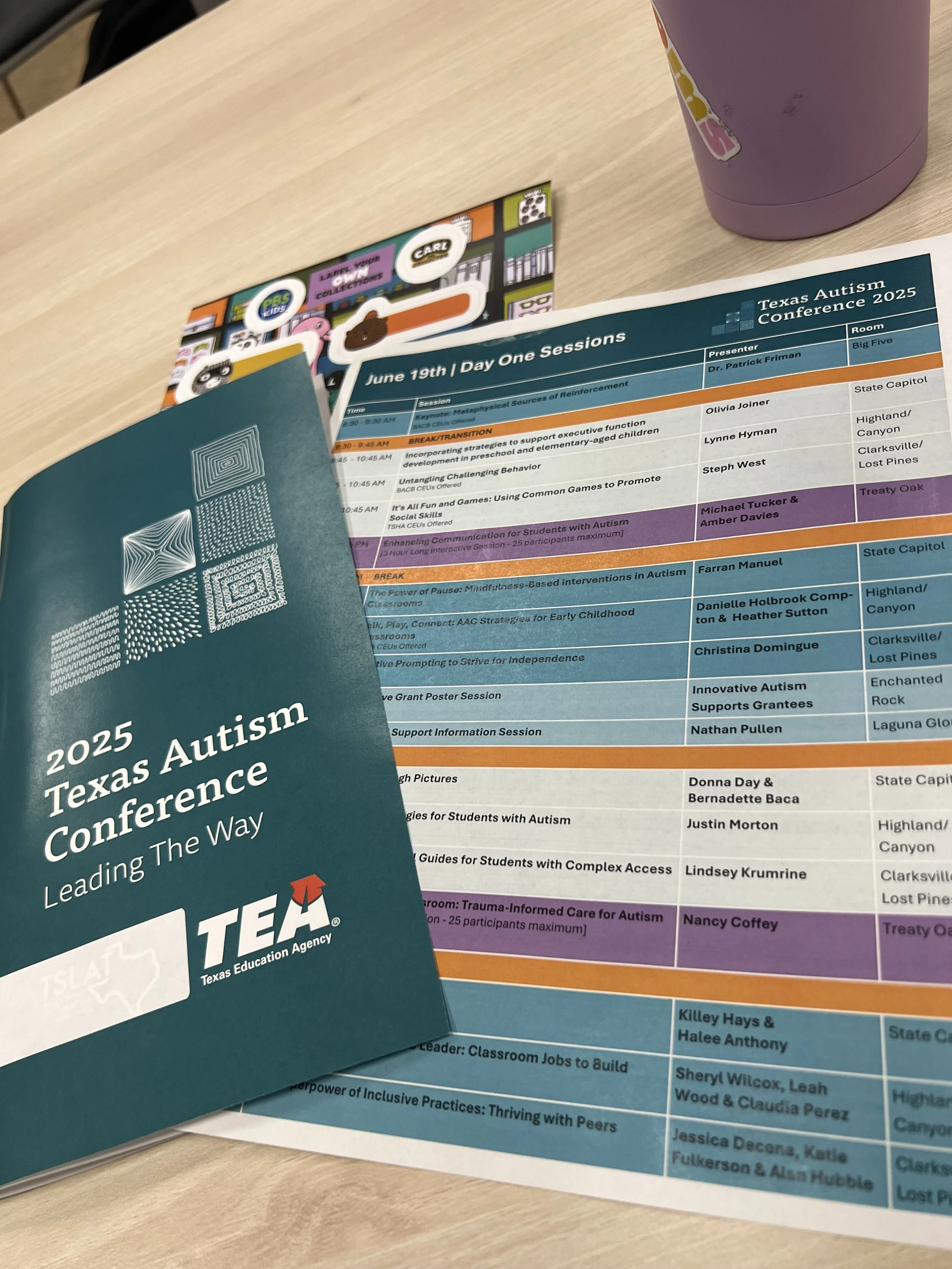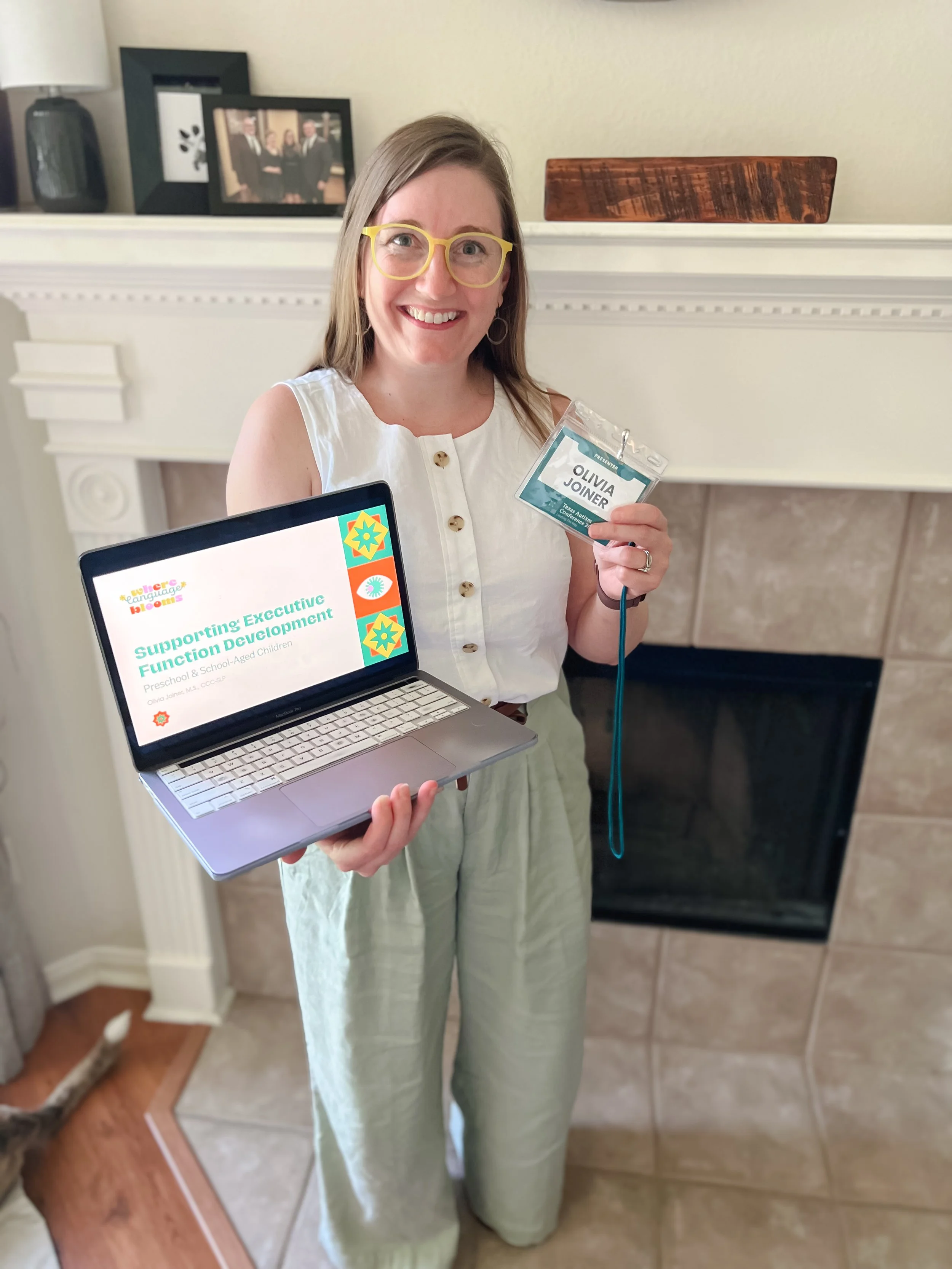Recapping the Texas Autism Conference
Listen to this blog post here: (~3 minutes)
Back in June, I had the opportunity to attend the Texas Autism Conference, hosted by the Texas Education Agency at the Region 13 Education Service Center. I also presented at the conference on incorporating Executive Function skills into early childhood education and early elementary classrooms. It was such a wonderful experience.
If I’m being honest, it’s easy to be upset about the status of public education in Texas. Texas consistently has one of the lowest per-pupil spending in the country, meaning that for each student in the public education sector, they’re receiving less funding per student than the national average. That doesn’t sound great, right?
So when I walked into a bustling crowd of a couple hundred educators, special educators, therapists, psychologists, behavior analysts, and more on June 19th, I was nervous about what the energy at the conference would feel like & how would these individuals speak about their roles as educators?
I left inspired.
Sure, we have work to do! But here were a few hundred people spending their summer hours to learn more about things like AAC (Augmentative and Alternative Communication), supporting kids with complex communication needs, transition support for after they age-out of school based programs, executive function skills, and so much more. The energy in the room was positive, with a touch of understanding of the many barriers that exist in supporting students accessing special education.
The resources? More than I imagined! Here were a couple of my takeaways:
Education Service Centers are available and can be an incredible resource for school personnel, including that they offer coaching and support for educators!
Conversations about transition support for students with Autism or complex communication needs should be happening at the middle school level AND should be individualized. YES!
Use your Assistive Technology lending library! There are so many resources available for accessing a variety of types of AAC for students.
Mental health matters - for our educators and for our students. We should all know the signs and resources available to students who may be experiencing mental health challenges.
So, what’s next? Well, I hope that educators know of these resources, first of all! I also hope that many of them are considering accessing this conference in the future! I’d be interested to know what barriers might exist for educators unable to access the conference and how do we minimize those barriers?
It was a wonderful experience and I’m grateful the Texas Education Agency and Region 13 host this awesome event (for 33 years now!) to provide so much information and resources to educators! Thanks for letting me be a part of it and I certainly look forward to attending in the future, so I can further my knowledge and understanding of services in the schools to provide the best support to my clients.




